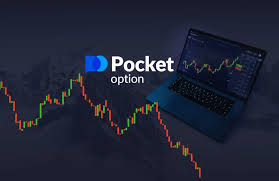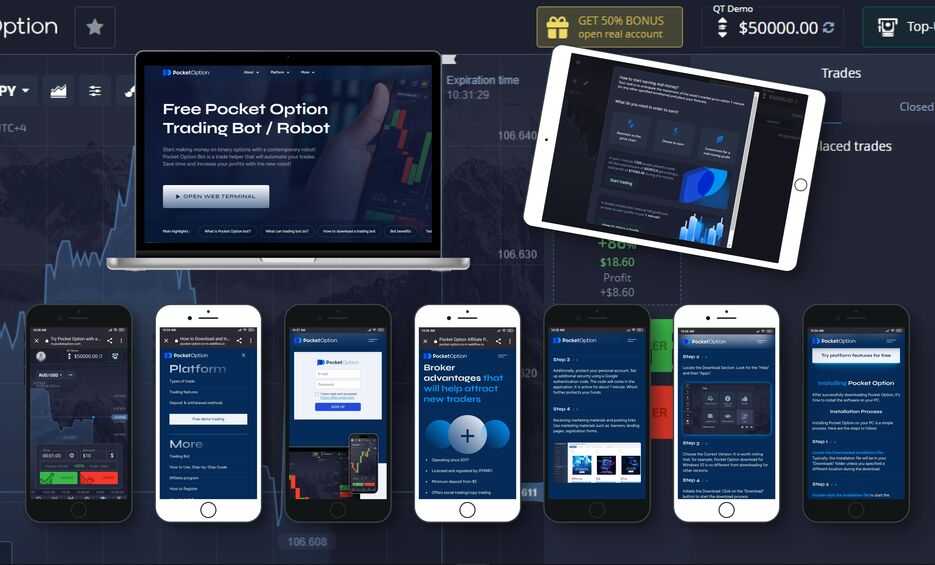
In the world of online trading, knowing how to fund your account is a critical skill. Whether you’re a seasoned trader or just starting out, having a clear understanding of how how to put money on pocket option pocketoption-forex works can significantly enhance your trading experience. In this comprehensive guide, we will explore different methods on how to put money on your trading account, as well as some tips and best practices to ensure a smooth funding process.
Understanding Your Trading Platform
Before diving into the funding methods, it’s essential to familiarize yourself with your trading platform. Each platform may have different options for deposits, so make sure to check the specific guidelines provided by your broker. Common platforms like MetaTrader and proprietary brokers often have their own unique steps for adding funds.
Common Methods to Put Money on Your Trading Account
There are several popular methods for funding your trading account. Here’s a breakdown of the most common options:
1. Bank Transfer
Bank transfers are one of the most traditional and secure methods to fund your trading account. Despite the potential for longer processing times (ranging from a few hours to several days), many traders prefer this option due to its security. Ensure you have the correct bank details, and double-check for any transaction fees that might apply.
2. Credit/Debit Cards
Using credit or debit cards is one of the fastest ways to add funds to your trading account. Most brokers accept major cards such as Visa, MasterCard, and American Express. Transactions are usually instant, allowing you to start trading immediately. Do note that banks may impose their own fees, and it’s wise to check with your card issuer if they allow transactions with trading platforms.
3. E-Wallets
E-wallets are gaining popularity due to their convenience and speed. Services like PayPal, Skrill, and Neteller allow you to deposit funds quickly. Transactions via e-wallets are generally processed instantly, which means you won’t have to wait to start trading. Choose a wallet that is supported by your trading platform and ensure you understand any potential fees associated with e-wallet transactions.
4. Cryptocurrency
In recent years, many trading platforms have begun accepting cryptocurrencies as a form of payment. This method can be particularly appealing for those who are already familiar with digital currencies like Bitcoin, Ethereum, and others. Make sure to verify the security of the payment process, as crypto transactions can be subject to high volatility.
Steps to Deposit Funds
While the methods may vary, the basic steps for making a deposit are typically consistent across most trading platforms. Here’s a general guideline to follow:
1. Log into Your Trading Account
Access your account using your username and password. For security, ensure you’re using a secure internet connection.
2. Navigate to the Deposit Section
Look for a section labeled “Deposit,” “Funds,” or “Account Funding.” This will direct you to the options available for putting money on your account.

3. Select Your Preferred Payment Method
Choose the payment method you wish to use from the available options. Make sure you have all the necessary information ready, such as your card numbers or e-wallet credentials.
4. Enter the Deposit Amount
Specify the amount you wish to deposit. It’s advisable to start with a modest amount until you are comfortable with the trading environment.
5. Confirm Your Transaction
Review all information for accuracy, including amounts and payment method. Once confirmed, initiate the transaction.
6. Wait for Processing
Depending on the method chosen, you may have to wait for the transaction to process. Bank transfers might take longer, while credit cards and e-wallets are generally instant.
Tips for Hassle-Free Deposits
To ensure your funding experience is as smooth as possible, consider the following tips:
1. Check for Fees
Always check for any fees associated with your chosen funding method. Different payment methods may carry different fees, and it’s essential to factor this into your funding decisions.
2. Keep Security in Mind
Make sure to protect your account by using strong passwords and enabling two-factor authentication where possible. This can help prevent unauthorized access to your trading account.
3. Be Aware of Limits
Many platforms have minimum and maximum deposit limits. Familiarize yourself with these limits to avoid any issues during the funding process.
4. Take Advantage of Promotions
Many brokers offer promotions or bonuses for new deposits. Keep an eye out for such offers, but read the fine print to understand the terms and conditions associated with these promotions.
Conclusion
In summary, knowing how to put money on your trading account effectively is an essential skill for any trader. Each method has its advantages and disadvantages, and the best choice will depend on your personal preferences and circumstances. Always ensure that you are using a reputable trading platform and that your payment method is secure. With this knowledge and preparation, you can confidently fund your account and begin your trading journey.


3 thoughts on “How to Effectively Put Money on Your Trading Account”
https://t.me/s/officials_pokerdom/3503
https://t.me/s/Martin_casino_officials
Australian Pokies Real Money Real One Spin Million Everything